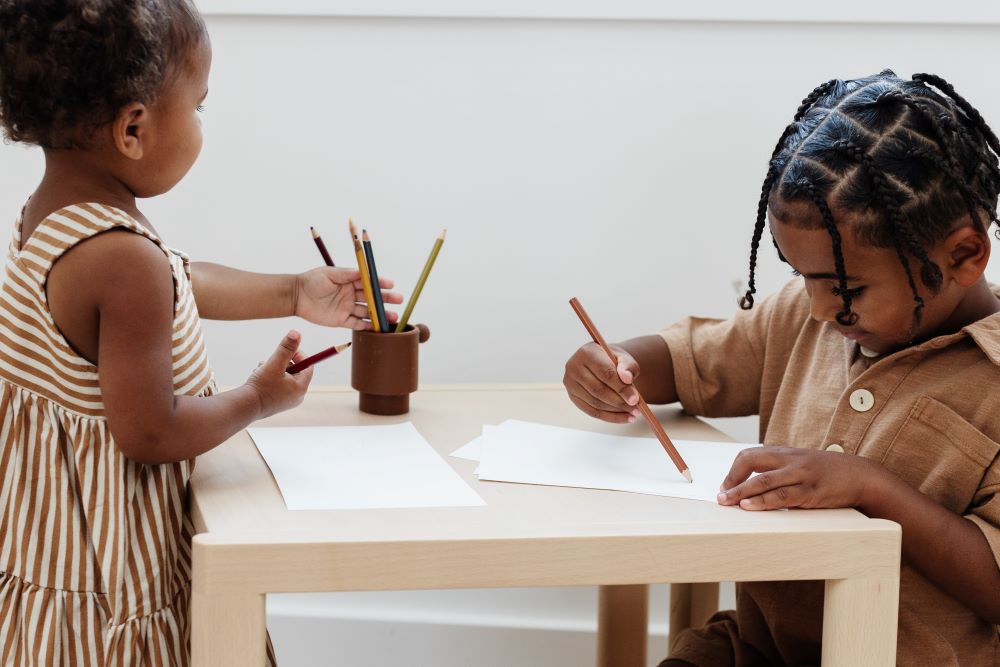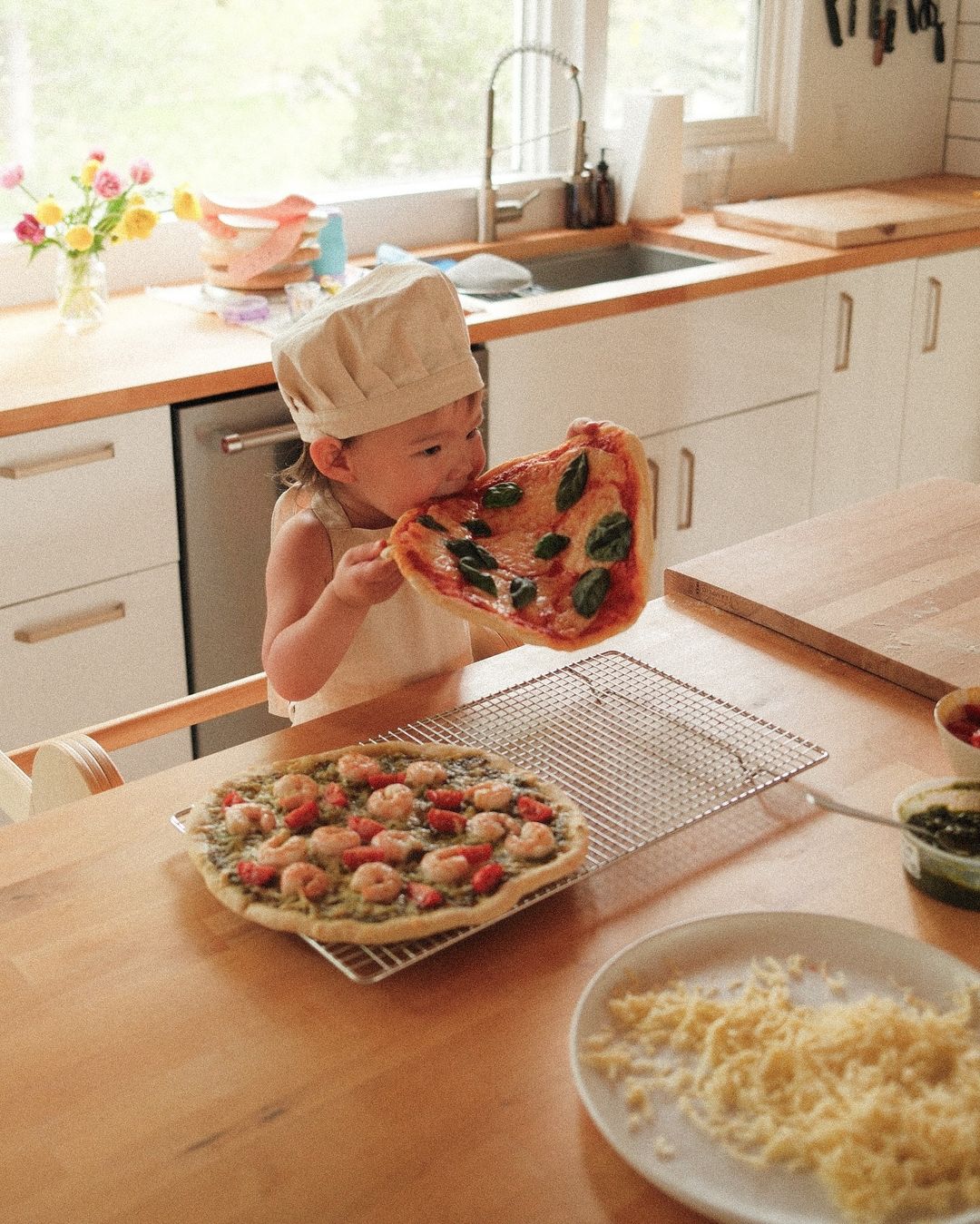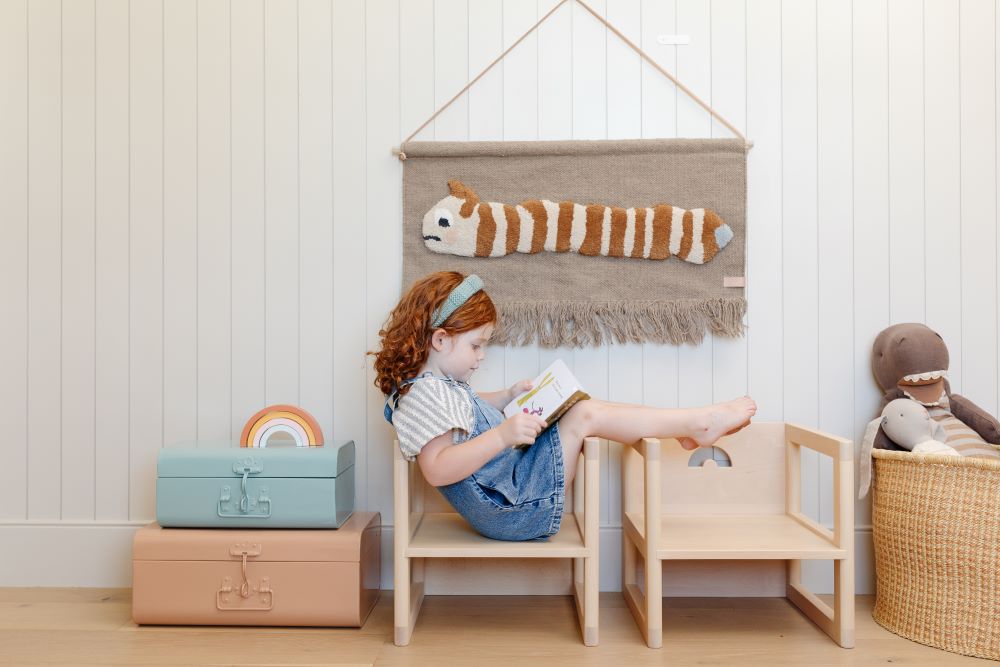From butterflies in your little one's belly, to crying, excitement, and nostalgia, the back to school season brings strong feelings. Both parents and children may struggle with back to school anxiety. These feelings are normal.
As a former teacher and mother to three, I've been through my fair share of first days of school. To get more insight, I spoke with Karina Chacón, a veteran teacher. Since 2010, Chacón has been teaching kindergarten and elementary school. Read on to learn our top tips for managing back to school anxiety and difficult school drop-offs.
Tips for a Happy First Day of School
Younger children attending school for the first time are often understandably nervous. Part of feeling anxious is worry about the unknown. Parents can help children manage these feelings by preparing them ahead of time.
How to Prepare Your Child for the First Day of School
Chacón recommends creating a story using photographs. Using photos, you can show your child their new routine including going to school, greeting their teacher, and being in the classroom. Turn it into a fun story you can tell together that also highlights some of the activities your child may enjoy at school. Chacón suggests that parents start telling the story about a week before starting school to help prepare your child and calm anxieties.
Many schools hold an open house or meet and greet at the beginning of the school year. Take advantage of these events to familiarize your child with the idea of school. These events can help your child get a sense of what their classroom looks like and who their teacher will be.
Share the Plan with Your Child
"It's also important to explain who will drop them off and pick them up and what emotions they might experience. You can also give your child tips about what to do when those feelings come up, such as telling their teacher," Chacón suggests.
When setting expectations, also remember to explain the sequence of events in a way your child will understand. For example, instead of "I'll pick you up at 2 pm," you might say, "I'll pick you up after lunch."

How to Deal with School Anxiety
School anxiety can be a normal part of returning to school or starting school for the first time. The good news is that it is usually short-lived. Most school anxiety resolves within a few weeks of school, but more often within days.
Check-in With Your Child's Teacher
Your child's teacher is a great resource who can help you navigate your child's school anxiety. Sometimes, the story your child tells you about school isn't the whole story. Check in with your child's teacher to learn more about your child's experience.
As a teacher and mom, I've been on both sides of this issue. In my role as a teacher, I've had parents tell me that their child came home telling them that they "have no friends" at school. In reality, I had observed the child playing with many different classmates.
Similarly, my daughter recently told me she'd done a terrible job on a math activity at school. When I asked her teacher about it, the story was much different. Although my daughter had required some help, she'd completed the activity successfully. Talking with your child's teacher can help you get a better idea of how your child is responding to the school environment.
Signs of School Refusal and What to Do
Some children may have long-term symptoms of school anxiety known as school refusal. Or, your child may experience anxiety beyond the school environment. According to Stanford, some signs of school refusal include:
- Symptoms of anxiety such as headaches or tummy aches that resolve if you keep your child at home.
- Persistent negative feelings about going to school that extend beyond the first few weeks of the year.
- Frequently requesting to go to the nurse or call home.
Sometimes, academic or social issues at school may worsen symptoms of anxiety. Get in touch with your child's school to rule out any of these issues.
If your child shows signs of school refusal or an anxiety disorder, also talk with your child's pediatrician. Working with your child's doctor, teacher, and a mental health professional can often resolve these issues so your child can enjoy school.
How to Handle Your 5 Year-Old Crying at School Drop Off
Crying at school drop off can be just as heartbreaking for parents as for children. Saying goodbye, even for a few hours, may feel like a significant step for both of you. The main emotion at play for children is fear of separation. Separation anxiety is the fear and discomfort that children feel when leaving their primary caregivers.
By the time your child is 5 years old, separation anxiety is usually minimal. That said, in my experience as a teacher, I've seen many kindergarteners cry at drop-off. In each case, the child almost always calmed down within about fifteen minutes.
Chacón recommends that parents drop their children off quickly and firmly, even if they cry. "The teacher will know how to help them calm down. Generally, children cry for a few minutes and then join the rest of the children. Many times, when parents pick up their children from school, they've had such a good time they don't want to leave," she says.
Tips for Your Anxious Child
If your child is struggling with drop-off, try talking with your child when they are calm. Perhaps on the weekend, or during an afternoon when your child seems happy, bring up the issue. Open the conversation by saying, "I noticed you're having a hard time going to school. Can you tell me how you're feeling?"
Then, you may consider asking your child to help you with problem solving how to improve the drop-off. Perhaps you decide to include a special note from you in their lunch box. A picture or a heart signed "Mom" or "Dad" can remind your child you love them. Alternatively, tuck a family photo in your child's backpack that they can look at if they feel sad.
Acknowledging your child's feelings is an important part of the process. You can reassure your child that it is hard to spend time apart. Then, try to focus on any positive experiences your child has had. For example, if your child enjoys the playground, you can remind them of that.
Another strategy is to look at your morning routine. Sometimes, if you can make a little extra time for a snuggle and quality time, your child might feel more confident at drop-off. Also, avoid rushing your child through their morning routine so your child can start their day on the right foot. When your child has enough time to eat and prepare for the day, you can avoid conflicts that make the transition more challenging.

Tips for Parents
As a mom, I know that leaving your child at school crying feels terrible. However, parents' emotions and worries can rub off on our children. So, do your best to put on a brave face for your little one.
Sending your child to school for the first time can bring up lots of emotions. Try to acknowledge your feelings away from your child. You might call up a trusted friend or talk through your feelings with your partner.
As parents, it's important to show confidence in the school. By showing your child that you believe that school is a great place, you can help them feel better about going. If your child cries and seems upset at drop-off, you can say, "I love you and I'll pick you up after lunch. I'm sure you'll have a great day!"
Another strategy is to try switching who drops your child off at school. Children may have a stronger emotional reaction when dropped off by one parent than if another parent or caregiver does drop-off.
Surviving Back to School Anxiety
Before you know it, your child will be a pro at going to school and managing the drop-off.
Do you have a story to share with us? Let us know in the comments below.








Leave a comment
This site is protected by hCaptcha and the hCaptcha Privacy Policy and Terms of Service apply.